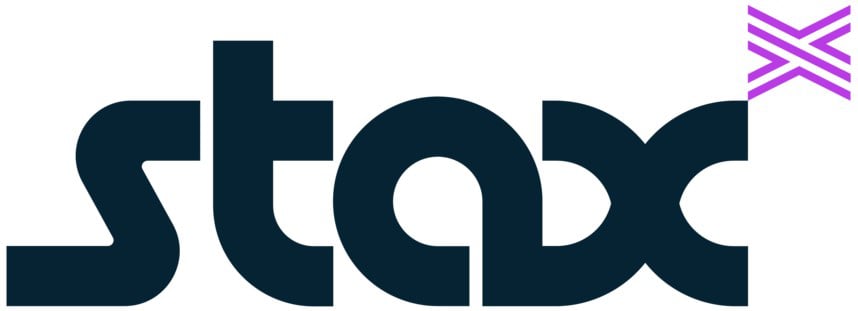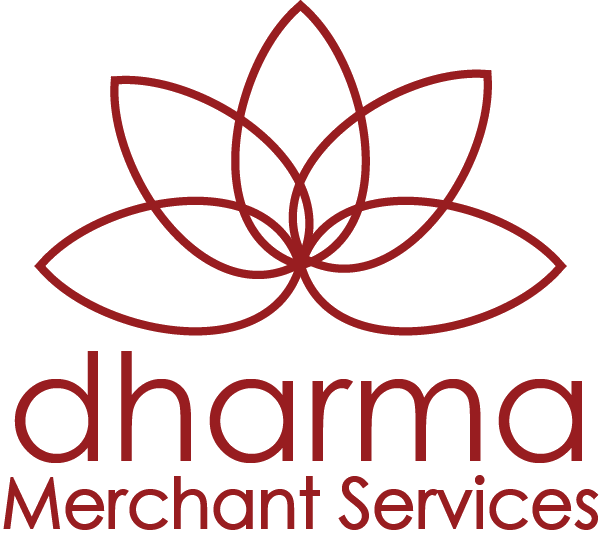Can You Legally Pass on Credit Card Fees to Customers?

Many, or all, of the products featured on this page are from our advertising partners who compensate us when you take certain actions on our website or click to take an action on their website. However, this does not influence our evaluations. Our opinions are our own. Here is a list of our partners and here's how we make money.
There are legal options for passing on credit card fees to customers.
Credit card surcharging and cash discounting are the two main options for passing on fees.
Adding a surcharge to credit card payments is not legal in every state, but offering a cash discount is.
Implementing minimum purchase amounts and convenience fees can help control costs, too.
Small-business owners who accept card payments for goods or services know that offering choice on how their customers pay comes at a cost. Credit card processing fees can add up quickly. According to data released by the Nilson Report, merchants paid $172.05 billion in processing fees to accept card payments in 2023 — an increase of 7.1% compared with 2022.
Business owners may want to explore their options for legally offsetting credit card fees. Passing on credit card fees to customers is certainly not something every small-business owner feels comfortable doing, but if you are curious about your options, read on to learn about credit card surcharging, cash discounting and other ways to reduce payment processing fees.
Find a cheaper credit card processor
Options for passing on credit card fees to customers
Before deciding whether passing on credit card fees to your customers or implementing other cost-saving strategies is the right move for your business, consider your options for doing so and the pros and cons for each.
Credit card surcharging
Credit card surcharging enables a business to charge an additional fee (up to a maximum of 3% of the total transaction for Visa and up to 4% for Mastercard) when a customer pays with a credit card. This is meant to cover the cost of the processing fees for the business.
This practice is legal in all but four states — Connecticut, Maine, Massachusetts and Oklahoma. Other states allow surcharging but may limit the amount or mandate that the total price (including the surcharge) must be disclosed before the sale is completed. For example, Colorado caps the surcharge fee at 2%. Make sure you know your state's laws regarding surcharges before implementing the practice at your business.
It is also important to note that surcharging is not allowed for debit cards, even when they are run as a credit transaction. Businesses that plan to add a surcharge to card payments must follow a specific set of rules laid out by the major card networks, notably Visa and Mastercard. One such rule states that any business that plans to add a surcharge must notify the card network in writing at least 30 days before beginning to surcharge.
If you’re considering adding a surcharge for customers who pay by card, know that card networks generally frown upon this practice as it can deter customers from using their credit cards. You’ll likely also want to give consideration to your customer base and how they may react to seeing an additional fee at checkout. It may be useful to first look into whether your competitors surcharge credit card payments and perhaps gather some feedback from your trusted customers on how they may react to it.
Can help cover the cost of processing fees.
May help improve your bottom line by reducing the amount you pay to the processor.
Not legal in all 50 states.
May subject your business to random audits by credit card networks.
Could cause customer dissatisfaction.
Cash discounting
Cash discounting, sometimes referred to as dual pricing, is another option available to business owners who wish to minimize the impact of credit card processing fees on their bottom line. Instead of adding a fee for card payments, businesses that offer a cash discount advertise both the full cost of a good or service (or the amount owed if purchased with a card) and a discounted price available to customers who pay with cash.
Unlike credit card surcharging, cash discounting is legal in all 50 states. But like surcharging, there are specific rules you must follow to offer a cash discount program in a legal manner. For example, a compliant cash discounting program necessitates that you clearly list the credit card price for all your customers to see before the point of purchase; you cannot list only the cash price and then surprise customers with a higher card price at the time of transaction. Again, it will be important to take into consideration your customers’ likely reaction to a program like this before implementing it.
Legal in all 50 states.
Customers may be more receptive to a percentage discount (vs. percentage added fee of a surcharge).
May feel more familiar to customers, since it's long been an option at gas stations.
Likely need to raise prices on all items or services before implementing for it to make sense financially.
Could cause customer dissatisfaction.
May require more effort and resources to accommodate more frequent bank deposits.
Convenience fees
Businesses that typically accept payments in person, for example, may charge a convenience fee for transactions completed via an alternative, non-standard method, like over the phone or online. For example, a concert venue that primarily sells tickets at its ticket booth might charge a convenience fee for ticket purchases made online. Rather than attaching a fee to a specific payment type (e.g., credit cards), convenience fees charge for the specific payment method used (e.g., online). While imposing this fee wouldn’t offset the fees on all credit card transactions, it helps cover some.
Like surcharging and cash discounting, convenience fees come with their own set of rules that may vary by state and locality. But generally, according to Visa, you can’t charge convenience fees in a face-to-face environment and the extra fee must be disclosed before the customer completes their purchase.
Legal in all 50 states.
May feel more familiar to customers who have bought tickets online before, for example.
Lump sum convenience fee may cover more than the processing fee.
Can be applied to debit card and ACH payments, in addition to credit card payments.
Doesn’t apply to in-person payments.
Lump sum convenience fee (e.g., $3) may deter customers from making the purchase altogether.
Minimum purchase amounts
Businesses may prevent customers from paying with a card unless their transaction total exceeds a set amount, like $5 or $10. Processing fees for very small purchases may eat into the business’s profit enough that the business could actually lose money on the sale. Unlike the options above, there’s no extra fee involved in this strategy. However, it does let businesses be pickier about which transactions are worth paying processing fees for.
While states don’t limit the use of minimum purchase requirements like they do surcharging, credit card networks do have their own rules. For example, merchants cannot impose a minimum purchase amount higher than $10 for Visa cardholders.
Doesn’t impose an extra fee on the consumer.
Easy to implement.
Has less state-specific rules than surcharging, for example.
Doesn’t offset processing costs for purchases that cost more than the minimum amount.
Payment processors with solutions for passing on credit card fees
| Product | Payment processing fees | Monthly fee | Learn more |
|---|---|---|---|
 National Processing NerdWallet Rating Learn more on National Processing's website | 0%-1.5% + 0¢-48¢ for Basic In-Person Package. | $10 for Basic In-Person Package. | Learn more on National Processing's website |
 Stax by Fattmerchant NerdWallet Rating Learn more on Stax by Fattmerchant's website | 0% + $0.08 Plus interchange | $99 and up. | Learn more on Stax by Fattmerchant's website |
 Dharma Merchant Services NerdWallet Rating | 0.15% + 8¢ plus interchange in-person; 0.20% + 11¢ plus interchange online. | $15 for most industries; $12 for nonprofits. |
Increasingly, payment processors are offering compliant solutions for credit card surcharging and cash discounting. Here are several such processors that also make NerdWallet’s lists of best payment processing companies, best credit card processing companies and best merchant services.
Dharma Merchant Services
Solution type: Credit card surcharging.
Why we like it: While Dharma’s surcharging solution comes with an added monthly cost, it also comes with extra benefits, including the ability to surcharge for card-present and card-not-present transactions within Dharma’s virtual terminal and for invoiced and recurring payments. Dharma’s platform that enables the surcharge option also integrates with QuickBooks, which makes for smoother bookkeeping. Read our full Dharma Merchant Services review.
Stax
Solution type: Credit card surcharging.
Why we like it: Stax’s surcharging program lets businesses pass up to 100% of an online or in-person transaction’s processing fees to the customer. The company’s payment processing platform is best for high-volume businesses that process enough card transactions to negate the monthly subscription fee.Read our full Stax review.
National Processing
Solution type: Cash discounting.
Why we like it: While many processors have begun to offer compliant credit card surcharge programs, National Processing stands apart with its compliant cash discount offering. As long as you meet the monthly processing minimum of $3,000, there’s no additional charge to make use of the cash discount program. Read our full review of National Processing.
| Product | Payment processing fees | Monthly fee | Learn more |
|---|---|---|---|
 Helcim NerdWallet Rating Learn more on Helcim's website | 0.40% + 8¢ plus interchange, in-person; 0.50% + 25¢ plus interchange, online. | $0 | Learn more on Helcim's website |
 Square NerdWallet Rating Learn more on Square's website | 2.6% + 10¢ in-person; 2.9% + 30¢ online. | $0 Starts at $0/month for unlimited devices and locations. | Learn more on Square's website |
 Stripe Payments NerdWallet Rating Learn more on Stripe's website | 2.7% + 5¢ in-person; 2.9% + 30¢ online. | $0 | Learn more on Stripe's website |
 Shopify POS NerdWallet Rating Learn more on Shopify's website | 2.70% in-person; 2.9% + 30¢ online (Basic plan). | $39 and up for e-commerce plans with POS Lite; Can upgrade to POS Pro for an extra $89. | Learn more on Shopify's website |


